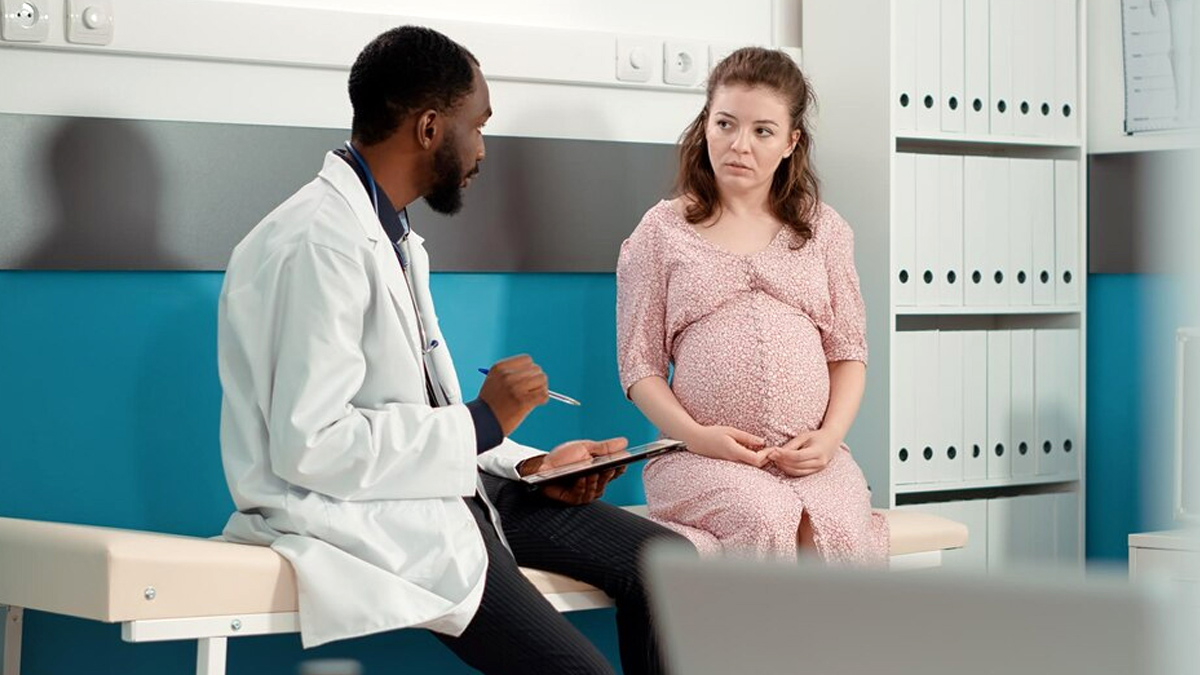
It is of utmost importance to take measures to protect the health of a mother during their pregnancy period. This is because certain health conditions can threaten the baby and the mother. Among these, hepatitis A, B, and C are significant due to their potential to cause severe liver inflammation and complications for both the mother and the unborn child. We spoke to our expert Dr Nazia Dalwai, MBBS DGO, Gynecologist and Obstetrician, Mumbai, who explained hepatitis during pregnancy and how it impacts the health of the mother and the foetus.
Table of Content:-
What Is Hepatitis A, B, and C?

Hepatitis A
According to StatPearls, Hepatitis A (HAV) is mainly spread through the faecal-oral route by ingesting contaminated food or water or through close contact with an infected individual. It is generally self-limiting and does not lead to chronic liver disease, but it can cause significant illness during pregnancy.
Hepatitis B
According to a 2023 study, hepatitis B is a potentially life-threatening liver infection caused by the Hepatitis B Virus (HBV). Transmission commonly occurs through bodily fluids like blood, semen, and vaginal secretions. Most immunocompetent adults (over 95%) infected with HBV can clear the infection independently.
Pregnant women with hepatitis B can pass the virus to their newborns during childbirth, making it essential to manage and monitor the infection closely.
Hepatitis C
"Hepatitis C is caused by the Hepatitis C Virus (HCV) and is primarily transmitted through blood-to-blood contact. It often leads to chronic liver infection, which can progress to cirrhosis and liver cancer over time. While the risk of mother-to-child transmission of hepatitis C is lower than that of hepatitis B, it still exists and necessitates careful monitoring during pregnancy," said Dr Dalwai.
Also Read: 5 Risk Factors Of Hepatitis That Should Urge You To Take A Test
Risks of Hepatitis During Pregnancy
Mother

"Pregnant women with hepatitis are at increased risk of liver inflammation, which can exacerbate during pregnancy due to the additional stress on the liver. This inflammation can lead to complications, such as preterm labour, gestational diabetes, and preeclampsia," added Dr Dalwai. In severe cases, acute liver failure can occur, posing a life-threatening risk to both mother and child.
According to the Virology Journal, pregnant women with hepatitis B infection have a 1.17 times greater risk of preterm delivery compared to those without the infection.
Child
The risks to the unborn child vary depending on the type of hepatitis. Hepatitis A typically does not cause severe complications for the baby, but hepatitis B and C pose significant risks. "Infants born to mothers with hepatitis B or C may be infected during childbirth, leading to chronic liver disease and other health issues later in life. Also, these infections can result in low birth weight and premature delivery," said Dr Dalwai.
Preventing Liver Inflammation
Vaccination

One of the most effective ways to prevent hepatitis A and B is through vaccination. "The hepatitis A vaccine is recommended for women who are at risk of infection, especially if they are travelling to areas with high rates of the virus. The hepatitis B vaccine is part of routine immunisation schedules and is crucial for preventing infection. There is currently no vaccine for hepatitis C, making prevention strategies even more critical", said Dr Dalwai.
Safe Practices
It is essential to practise good hygiene, such as thorough hand washing for hepatitis A. For hepatitis B and C, avoiding contact with infected blood and bodily fluids is vital. This includes using barrier protection during sexual activity, not sharing needles, and ensuring safe medical procedures.
Also Read: Viral hepatitis: Lifestyle Measures You Should Follow To Prevent It
Regular Screening

Dr Dalwai added, "Pregnant women should be routinely screened for hepatitis B and C early in pregnancy. As a result, the risk of mother-to-child transmission can be lowered with prompt intervention and management. For those already infected, regular monitoring of liver function and viral load is essential to manage the disease effectively."
Healthy Lifestyle
Maintaining a healthy lifestyle can help support liver health during pregnancy. This includes a balanced diet rich in fruits, vegetables, and whole grains, regular exercise, and avoiding alcohol and tobacco. Adequate hydration and stress management techniques, such as prenatal yoga or meditation, can also contribute to overall liver health.
Medical Management
"For women with chronic hepatitis B or C, antiviral medications may be necessary to manage the infection and reduce the risk of transmission to the baby. These medications should be prescribed and monitored by a healthcare provider with expertise in managing hepatitis during pregnancy", highlighted Dr Dalwai.
[Disclaimer: This article contains information provided by an expert and is for informational purposes only. Hence, we advise you to consult your own professional if you are dealing with any health issues to avoid complications.]
Also watch this video
How we keep this article up to date:
We work with experts and keep a close eye on the latest in health and wellness. Whenever there is a new research or helpful information, we update our articles with accurate and useful advice.
Current Version